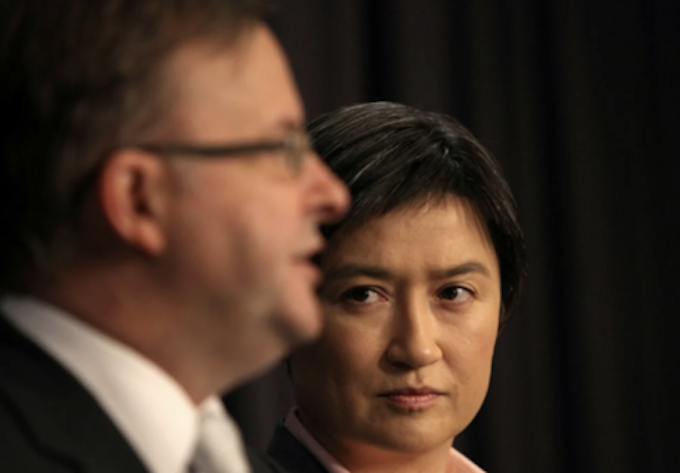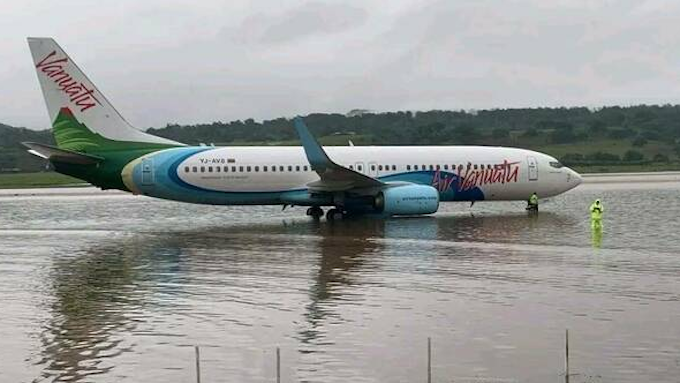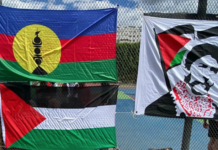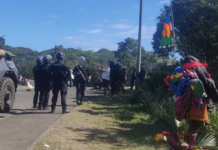
THE VILLAGE EXPLAINER: By Dan McGarry
With the Australian general election largely done and dusted, and with a clear (if still-to-be-quantified) mandate, Anthony Albanese faces greater and more immediate international challenges than any Australian Prime Minister since the Cold War began.
Between climate change and an increasingly truculent — not to say belligerent — China, Pacific island countries are searching for reassurance, safety and support. Reassurance that we are valued and respected, and that a rules based order has the same rules for everyone else as it has for us.
Safety, from the increasingly violent buffeting of climate change, and from the risk of losing our balance in the increasingly straitened geopolitical space we occupy. And support for our own self-determination, territorial integrity and survival.
Each if these will have significant impacts on the Albanese government’s domestic policies.
Each will have lasting impact on the Pacific islands region.
Let’s hope they’ve got a plan in place. They do not have the luxury of time.
Part of this fight will have to happen while they’re still strapping on the gloves. We’ve already looked at some of the challenges Penny Wong is likely to face when she (almost certainly) becomes Foreign Minister.
In this issue, we’ll enumerate some of the immediate challenges faced by Wong and her cabinet colleagues.
PIF Secretariat in shambles
The Pacific Islands Forum Secretariat is in a shambles right now, in no small part because of Australia’s call for a vote during the selection of its most recent Secretary-General, rather than enduring more painstaking but traditional method of consensus-building our leaders learned in the village meeting house.
The voting split the membership, and the Micronesian contingent still have not reconciled themselves completely.
There is little Australia can do to fix that. But they can offer unconditional support to the body itself, and for the idea it embodies. They can formally uphold the Boe Declaration, which lists climate change as the single greatest security threat faced by the Pacific islands region, by re-basing (sorry) their security stance on this premise.
They can fund and support the Blue Pacific strategy. They can fund the Secretariat’s climate indemnity scheme. They can show our reluctant leaders that the PIF is worth being part of.
More importantly, they can promote our voices in Washington and at the UN. Our plight on the world stage resembles the challenges women have faced since… forever. Ignored, subverted, explained to, denied agency over our own body politic. We don’t need people to speak for us. We need people to listen when we speak for ourselves.
Endorsement and sponsorship for voices like those of our esteemed Pacific Elders would go a long way to achieving that.
Even more ambitiously: Is a Pacific COP possible? I’d be pleasantly surprised if this Labor government proved willing to spend the time and effort reaching a landmark such as this.

Immense time, resources needed
The time and resources required would be immense, and would compete with dozens of looming challenges in the foreign relations/defence space.
Despite the massive victory it could bring, the opportunity costs are immense. If a COP were achieved, it would build a legacy that could be relied on for years to come, but as we’ve stated before, all this would have to be achieved with a lethargic, hidebound DFAT bureaucracy.
It’s sadly much easier to imagine Australia lurching from crisis to crisis, as it has for decades.
In terms of bilateral relations, the stakes are even higher. It is clear now that China intends to build on its perceived momentum in the Pacific, and to test Labor’s mettle from the very start.
Wang Yi’s tour of four (or five?) Pacific island nations is only days away. His diplomats have been working hard to replicate the success they achieved with Solomon Islands PM Manasseh Sogavare, who signed an unprecedented security agreement that would allow personnel to be stationed in-country and ships to visit and re-victual.
It doesn’t appear that Wang will get what he wants. The pressure is on in Kiribati, but the government there has paid a hefty political price for its whole-throated support of China.
Since 2020, it’s been feeling much more phlegmatic than it was in the past.
Chinese base in Kiribati a worry
Good thing, too. A Chinese base in Kiribati is one that even I worry about. Having AA/AD capabilities just a hop, skip and a jump from Honolulu would force a fundamental re-evaluation of the US Navy’s Pacific stance.
I’ve pooh-poohed talk of bases in Vanuatu and Solomon Islands in the past. I worry about Kiribati.
Vanuatu, at least, has managed to keep dancing on the head of an increasingly pointy pin. Resisting pressure at the highest level to include an overt security component in Wang Yi’s gift bag, it has instead signed on to a massive upgrade for its Luganville airport, which will allow wide-body aircraft to fly there directly from Asia.
The island of Espiritu Santo has some of the most beautiful beaches in the world. An upgrade to its international airport is part of Vanuatu’s 2018 tourism development strategy.
Yes, it’s undeniably true that any airport that can handle an A330 NEO can also handle a C17 or a Xi’an Y-20. But Vanuatu has — for the moment, at least — avoided explicitly allowing any such flights, except possibly for humanitarian reasons.
Vanuatu’s example is illuminating. They appear to have translated a high-stakes geopolitical gambit into an economic development gain that fits the country’s plans, and which will provide a massive economic boost to its moribund tourist industry.
But they are faced with increased stridency from all sides, and if they lose the space to manoeuvre, either through rising geopolitical tensions or because climate change pushes us past the point of resilience, then we will be more at risk ourselves, and more of a risk to our neighbours.
A precarious truth in the Pacific
This precarious truth applies even more so in Solomon Islands, in PNG, in Fiji … in fact everywhere in the region. Security begins with stability and predictability. We need to know we’ll be around in a generation’s time before we make any other promises.
And we need to know that Australia’s promises will be kept this time, rather than sacrificed at the altar of domestic politics, as they have under every Liberal and Labor government since the millennium began.
Can Penny Wong unilaterally undo these all tensions? No. But she can fight for a foreign policy that changes Australia’s trajectory, rather than one that attempts to change ours.
Rather than trying to align us to Australia, she can fight to align Australia to confront our common existential threats, to listen to how we expect to address them, and then to be a proper friend, and act on our words.
The Village Explainer by Dan McGarry is a semi-regular newsletter containing analysis and insight focusing on under-reported aspects of Pacific societies, politics and economics. Republished with permission.











































